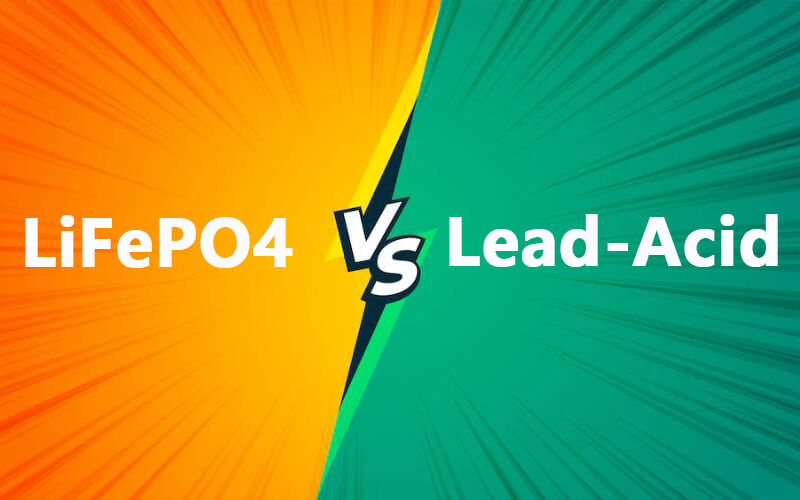
As lithium iron phosphate batteries are used more and more extensively, traditional lead-acid batteries have been gradually replaced by them. What is the difference between lithium iron phosphate batteries and lead-acid batteries? What are the advantages of lithium iron phosphate batteries?
About LiFePO4 Battery and Lead-acid Battery
Lithium iron phosphate battery, also known as LiFePO4 battery and LFP battery, is a type of lithium battery using lithium iron phosphate as the positive electrode material and carbon as the negative electrode material, with a nominal voltage of 3.2V (single cell) and a charge cut-off voltage of 3.6V-3.65V.
The lead-acid battery is a kind of battery whose electrode is mainly made of lead and its oxide, and the electrolyte is a sulfuric acid solution. The lead is immersed in sulfuric acid and a controlled chemical reaction occurs. This chemical reaction is what causes the battery to generate electricity.
LiFePO4 Battery vs Lead-acid Battery: Comparison
Energy Density
The energy density of a lithium iron phosphate battery is higher than that of a lead-acid battery. Lithium iron phosphate batteries are smaller and lighter than lead-acid batteries for the same battery capacity.
Cycle Life
Lead-acid batteries can reach about 300-500 cycles. On the contrary, the cycle life of LiFePO4 batteries is much longer. LiFePO4 batteries can reach over 2,000 cycles.
LiFePO4 batteries (learn: Why Should We Choose XT LiFePO4 Batteries) last longer and are maintenance-free, making them a more cost-effective option in the long run.
Charging Time
Lead-acid batteries can handle only a limited amount of charging current. This is mainly because they will overheat if charged too quickly. What’s more, the charging rate of lead-acid batteries slows down greatly when full (learn: Best 5 Battery Backup for Home [Full Guide]) capacity is reached.
On the other hand, LFP batteries can deal with higher amperage. Compared with lead-acid batteries, LFP batteries have a faster charging time.
Environmental Impact
Lead-acid batteries contain heavy metals such as lead, which can cause pollution to the environment. However, the material of the LFP battery is non-toxic and non-polluting. It is a green battery.
Summary
All in all, we find that LFP battery outperforms lead-acid battery. That’s why the LFP battery is becoming more and more popular. If you want to buy an LFP battery, you can choose Polinovel. As a professional lithium ion battery manufacturer, Polinovel can offer you safe, long-lasting, and top-quality batteries.

